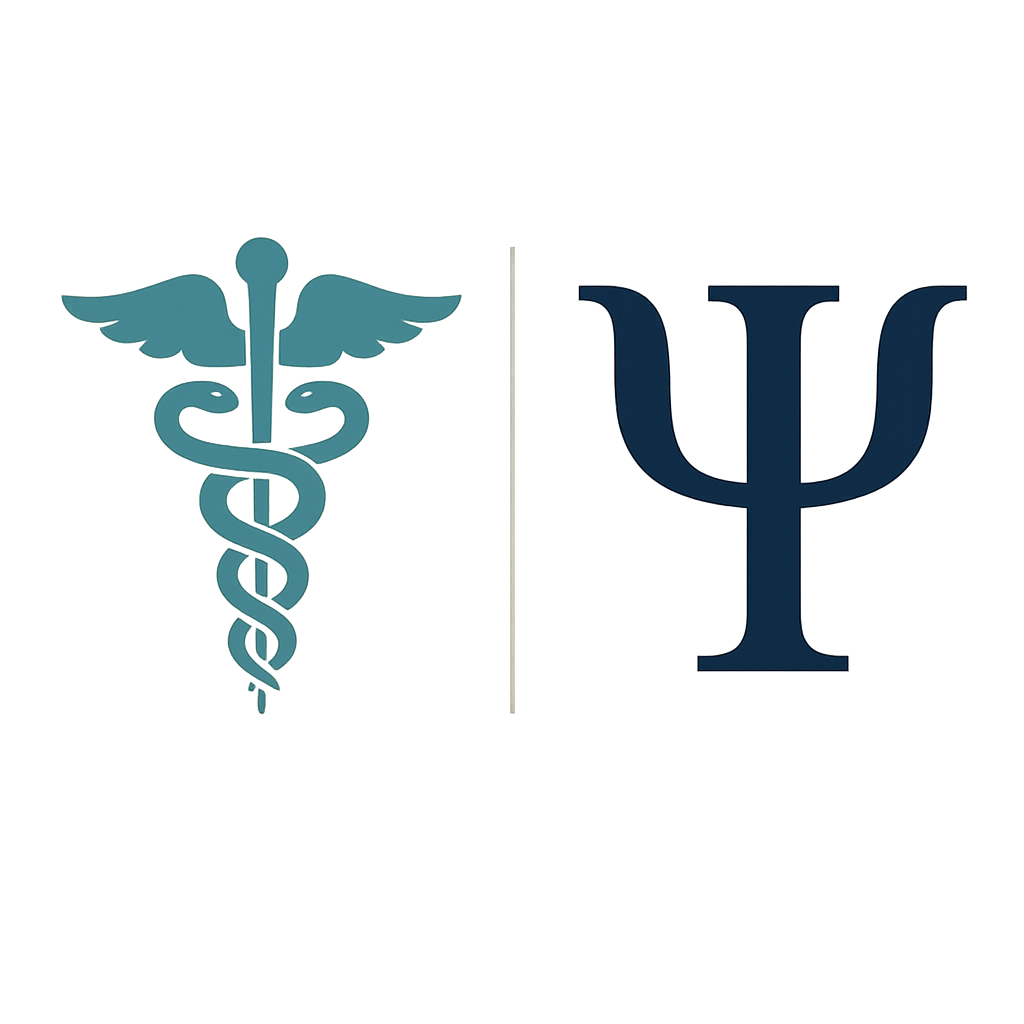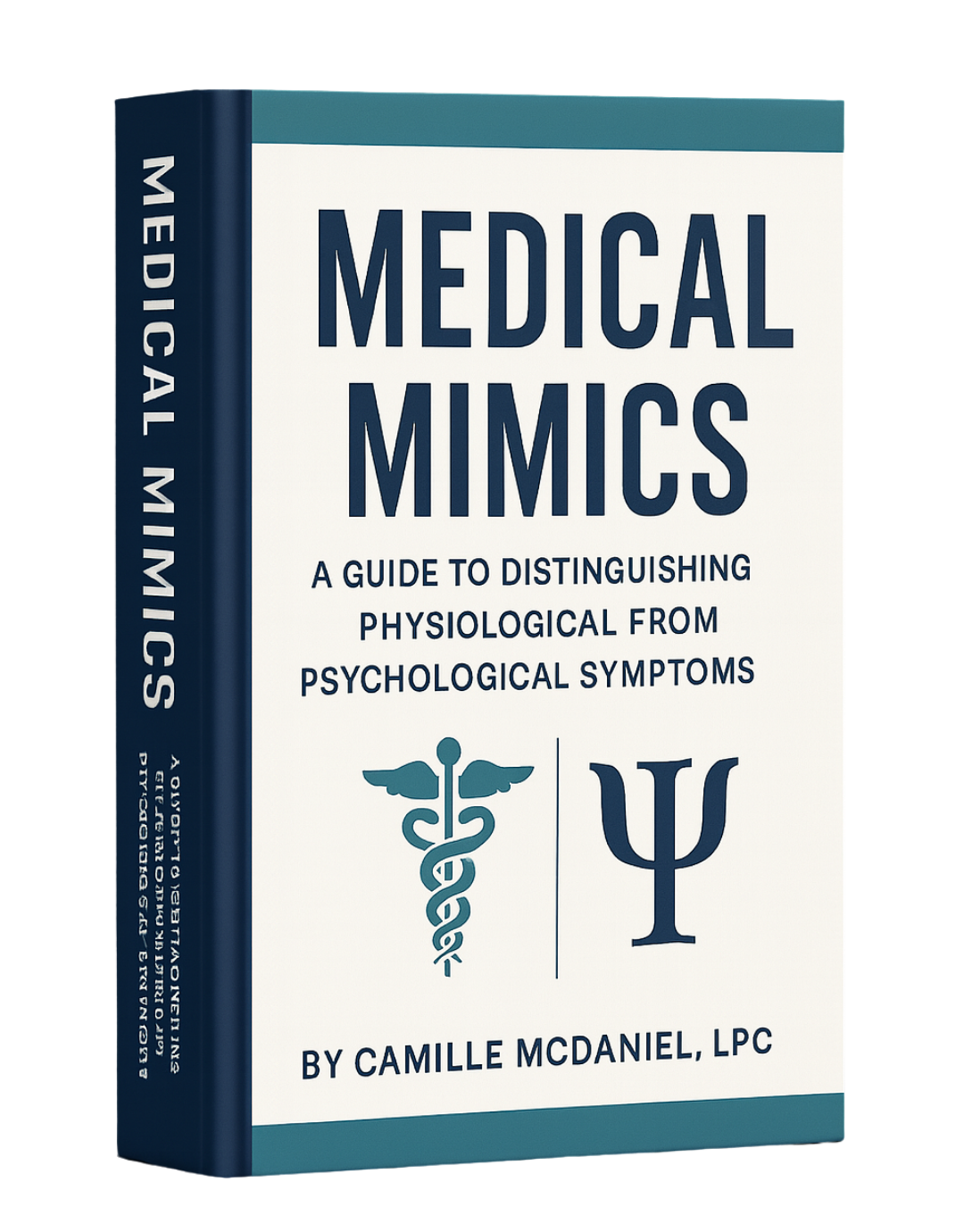Online Training
Recognizing and Responding to Medical Mimics in Mental Health
Why Medical Mimics Matter
Medical mimics aren’t a new discovery, research has shown for decades that physical health conditions can look like mental health concerns. What’s missing is clear, accessible training for counselors, therapists, and mental health professionals who want to recognize the red flags and know when to refer a client to speak with their physician.
As a Licensed Professional Counselor with over 20 years of clinical experience, I’ve seen how powerful it is when we step out of our silos and take a more integrative approach to care. I’ve definitely referred clients to speak with their physicians to get the medical care they needed simply by recognizing symptoms that went beyond mental health.
The Medical Mimics training, and book coming 2026, were created to bridge this gap. Equipping counselors with practical tools, checklists, and frameworks to protect their clients, practice ethically. This is not about becoming a doctor in the counseling room.
It’s about becoming the kind of counselor who knows when to pause, ask questions, and point clients toward the help they truly need.
That way, you’re:
✅ Acknowledging research
✅ Positioning yourself as a bridge-builder
✅ Staying in your lane (ethics)
2 Training Options
This training is designed for licensed clinicians in private practice who want to strengthen their skills, student mental health professionals who are looking for a stronger foundation, and seasoned mental health professionals who want to refine their intake and advocacy process.
The Essential Foundations
Immediate Access Includes:
-
-
3 Modules, 75 Minutes of On-Demand Training + Reflections/Quizzes – Focused on strengthening awareness and ethical decision-making.
-
Recognize Key Red Flags – Identify when symptoms may point to a possible medical issue and when referral to a physician is appropriate.
-
Bridge the Gap Between Counseling & Medicine – Learn strategies for overcoming common barriers and collaborating effectively with healthcare providers.
-
Practical Advocacy Tools – Equip clients with trackers, guides, and letter templates to support their conversations with doctors.
-
3 Downloadable Forms – A quick reference guide, client-friendly trackers, and a collaborative letter template.
-
Greater Clinical Confidence – Enhance clarity in your work and strengthen your ability to serve clients ethically and effectively.
-
$97
The Complete Framework
Complete Framework Training
-
Live Training – October 16 (2 hours)
-
Recorded Training Available – October 23 for flexible access
-
Full Practical Toolkit – Checklists, trackers, and templates designed for real client use within counseling scope
-
Advanced Quick Reference Guide – A resource for identifying red flags and considering next steps for referral
-
Red Flag Awareness System – Helps clinicians recognize when medical evaluation may be warranted
-
Decision-Making Flowchart – Supports ethical choices and clarity in complex cases
-
Collaborative Letter Templates – Communicate effectively with physicians while staying in your lane
-
Case Documentation Guides – Structure your notes when medical concerns are suspected
-
Case Studies & Integration Strategies – Apply concepts to real-world counseling situations
-
8 Downloadable Forms – Streamline collaboration and advocacy (with some customizable options)
👉 Designed for clinicians who want to expand their foundation with a comprehensive toolkit that strengthens ethical practice, supports collaboration with healthcare providers, and builds confidence in navigating complex client presentations.
$197
Book Release Coming 2026!
About the Book
Not every mental health symptom originates in the mind. The Medical Mimics Training provides practical tools to help counselors recognize when symptoms like depression, anxiety, or cognitive decline may signal the need for medical evaluation. You’ll learn how to pause, identify potential red flags, and refer clients to a physician with confidence.
The companion book, releasing in 2026, expands on these concepts with detailed case examples, research, and reference materials, equipping clinicians with immediate tools and a lasting resource for ethical, collaborative practice.


